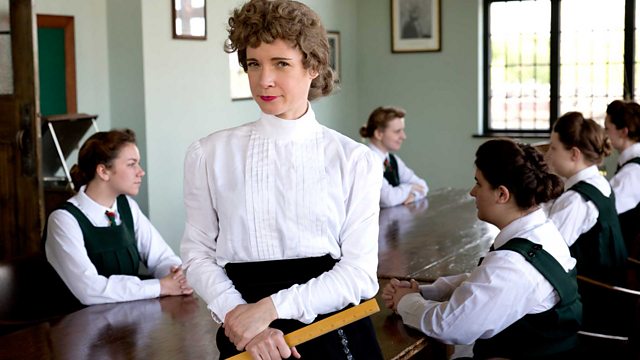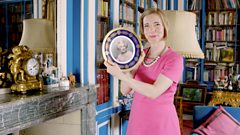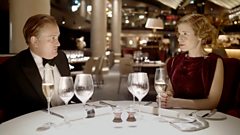Episode 3
Lucy concludes her series. Out of the carnage of World War One came a racier species of romantic love, and the hedonistic era of World War Two encouraged more permissive attitudes.
Lucy Worsley concludes her series with the most dramatic transformation of romance yet. Out of the carnage of World War One came a racier species of romantic love. It could be found in the novel The Sheik, the Fifty Shades of Grey of its time, while in real life Marie Stopes urged husbands and wives to explore their sexual desire.
New entertainments like dining out for two allowed couples to get to know one another without a chaperone, while going to the cinema provided a dark environment where hands could roam free. But as the hedonistic era of World War Two encouraged these more permissive attitudes, divorce rates soared. Romance, though, would prevail, with a fightback led by the queen of romance herself, Barbara Cartland.
Last on
More episodes
Previous
Next
You are at the last episode
See all episodes from A Very British Romance with Lucy Worsley
Clips
-
![]()
Queen Babs
Duration: 01:28
-
![]()
Dinner for two
Duration: 01:40
-
![]()
The Sheik
Duration: 00:57
Music Played
-
![]()
Pink Martini
Let's Never Stop Falling In Love
-
![]()
Etta James
At Last
-
![]()
Diddy
I Don't Like That (Interlude) (feat. Bristal & Mark Curry)
-
![]()
Fred Astaire
Cheek To Cheek
-
![]()
Joe Loss
Are You Having Any Fun?
-
![]()
Harry Roy
They CanΒt Black Out The Moon
-
![]()
Ambrose
Blue Skies Are Just Around The Corner
-
![]()
Donna Summer
Love to Love You Baby
-
![]()
Luba Organasova, Will Humberg & Slovak Radio Symphony Orchestra
La Rondine / Chi Il Bel Sogno Di Doretta
Lucy on EM Forster's "Maurice"

By the twentieth century, it was less and less likely that your parents would determine who you would marry as they had done in Georgian times. The two World Wars liberated people from convention. But for some people β like author E.M. Forster himself β barriers still remained.Β Some of the most romantic, heart-rending literature of the twentieth century involves gay protagonists, who still faced insurmountable obstacles to getting together with 'The One'. It often led to great fiction because such a plot has built-in tension.Β Β
Written in 1913-14, Maurice could be only published in 1971, well after its authorβs death.Β Forster dedicated it to βa happier dayβ. And although the lovers do get happily together, the romance is tinged with sadness for they have to defy society to continue their relationship.
Credits
| Role | Contributor |
|---|---|
| Presenter | Lucy Worsley |
| Executive Producer | Michael Poole |
| Executive Producer | John Das |
| Director | Rebecca Whyte |
| Producer | Rebecca Whyte |
Broadcasts
- Thu 22 Oct 2015 21:00
- Fri 23 Oct 2015 02:35
- Tue 2 Oct 2018 20:00
- Wed 3 Oct 2018 03:00
- Mon 10 Feb 2020 20:00
- Tue 11 Feb 2020 02:35
- Tue 6 Dec 2022 23:00
- Wed 7 Dec 2022 02:30
Featured in...
![]()
A Very British Romance with Lucy Worsley
Lucy Worsley delves into the history of British romance.






